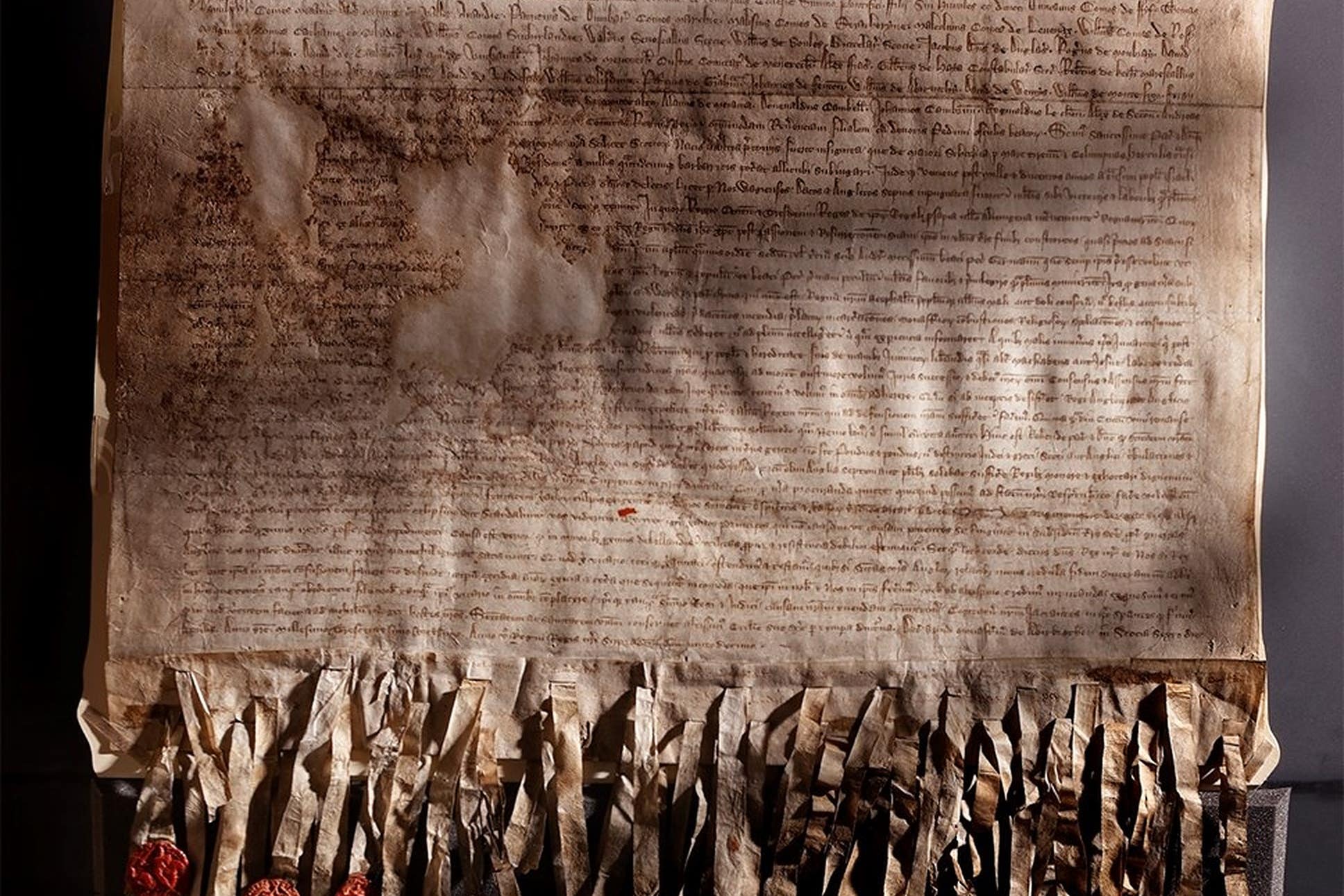Declaration of Arbroath to go on display in Scotland for first time in 18 years
Visitors will see famous pledge to fight ‘not for glory, nor riches, nor honours ... but for freedom’

The Declaration of Arbroath, which played a key role in the history of Scottish independence and inspired the rallying cry for ‘freedom’, will go on display this summer for the first time in almost two decades.
The 700-page document will be shown at the National Museum of Scotland in Edinburgh for the public to view from 3 June to 2 July.
It is a 6 April 1320 letter from the barons and freeholders of Scotland asking Pope John XXII to recognise Scotland’s independence and acknowledge Robert the Bruce as the country’s lawful king.
The letter also asks the pontiff to persuade King Edward II of England to end hostilities against the Scots.
It contains the famous pledge: “As long as but a hundred of us remain alive, never will we on any conditions be brought under English rule. It is in truth not for glory, nor riches, nor honours, that we are fighting, but for freedom - for that alone, which no honest man gives up but with life itself.”
The display has been organised in partnership between National Museums Scotland and National Records of Scotland, who are custodians of the document.
The fragile artefact can only occasionally be shown to ensure its long-term preservation and was last on display at the Scottish Parliament almost two decades ago.
Alice Blackwell, senior curator of medieval archaeology and history at National Museums Scotland, said: “We are delighted to have the opportunity to display the Declaration of Arbroath here at the National Museum of Scotland.
“It is a hugely significant document and a vital piece of Scotland’s history.
We are delighted to have the opportunity to display the Declaration of Arbroath here at the National Museum of Scotland
“We look forward to welcoming many visitors to enjoy the rare opportunity of seeing this iconic document close up.”
The declaration was most likely drafted at a meeting of the king and his council at Newbattle, then written up in the scriptorium of Arbroath Abbey.
It is written in Latin and was sealed by eight earls and around 40 barons.
“It was authenticated by seals, as documents at that time were not signed.
Laura Mitchell, deputy keeper at National Records of Scotland, said: “The Declaration of Arbroath is a key treasure in our extensive collections and we are proud of the role we play in conserving this significant historical artefact for future generations.
“The display will allow Scots and visitors from further afield to see this famous document for the first time in 18 years.”
Scotland’s culture secretary, Angus Robertson, said the document “is of great historic and cultural interest to Scots and people around the world of Scottish descent.”
Bookmark popover
Removed from bookmarks